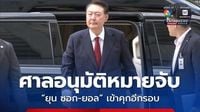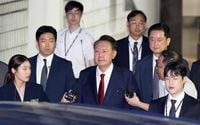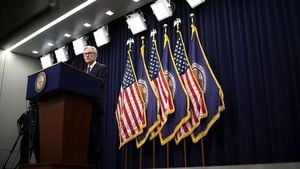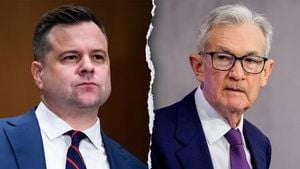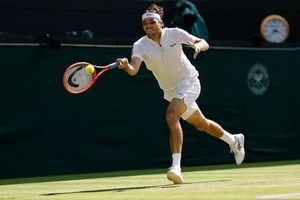Former South Korean President Yoon Suk-yeol was arrested again on the morning of July 10, 2025, amid escalating legal battles surrounding his controversial declaration of martial law in December 2024. The Seoul Western District Court approved an arrest warrant, citing concerns that Yoon might attempt to destroy crucial evidence related to multiple charges against him. This development marks the second time Yoon has been taken into custody since his initial arrest in January 2025.
Yoon, 64, who served as South Korea's president until his removal by the Constitutional Court in May 2025, was initially detained on January 15, 2025, at the official presidential residence. That arrest followed a massive operation involving hundreds of anti-corruption officials and police officers, just 12 days after security personnel obstructed efforts to detain him. He faced accusations of leading a rebellion and abuse of power linked to his attempt to impose martial law on December 3, 2024.
During his first detention, Yoon was held for 52 days before being released approximately four months prior to his recent re-arrest. Upon release, he returned to his luxury apartment in Seoul, living with his wife and eleven dogs. However, the legal storm surrounding him never subsided, as prosecutors continued to build their case with new allegations and evidence.
The special prosecutor's office, led by Cho Eun-seok, initiated a rigorous investigation in June 2025, focusing on Yoon's actions during the martial law episode. The charges outlined in the arrest warrant include obstruction of justice, abuse of power, forgery of government documents, and attempts to destroy evidence. Local media reports further detail accusations that Yoon violated the rights of cabinet members by obstructing a majority from attending a critical meeting preceding the martial law declaration. Additionally, prosecutors allege that Yoon ordered the dissemination of false information to foreign media, instructed aides to hinder his arrest in January 2025, and commanded the deletion of phone data from devices handed to three military commanders.
After a direct court interrogation, the Seoul Western District Court expressed serious concerns that Yoon might tamper with or destroy evidence, prompting the issuance of the new arrest warrant. Yoon was promptly transferred to the Seoul Detention Center, located about 20 kilometers from the city center, and placed in solitary confinement once again, as reported by Reuters.
Yoon's legal team vehemently denies all charges, describing the investigation as politically motivated and lacking factual basis. They have condemned the arrest as excessive and unjustified, emphasizing that Yoon has cooperated with authorities and rejected police summons on grounds they consider improper. The defense argues that the special prosecutor's rapid pursuit of the case is driven by political agendas rather than legal merit.
The backdrop to this legal saga is a deep political divide in South Korea. Yoon, a conservative politician, faced fierce opposition from rival factions who viewed his attempted martial law declaration as a direct threat to democratic institutions. The Constitutional Court's decision to remove him from office on May 4, 2025, was historic, underscoring the severity of the charges and the political turmoil enveloping the nation.
The martial law declaration itself, made on December 3, 2024, was seen by prosecutors as an unlawful exercise of power aimed at suppressing dissent and obstructing justice. The cabinet meeting leading up to this declaration has been scrutinized for alleged document forgery and procedural irregularities. Prosecutors assert that Yoon’s actions during this period amounted to a serious challenge against the constitutional order.
Despite the gravity of the accusations, Yoon maintains his innocence. He appeared in court to formally deny the rebellion charges and other allegations, insisting that the investigation is based on falsehoods and politically driven motives. His defense team continues to fight the legal battles, seeking to protect his rights and reputation.
As the criminal proceedings unfold, the South Korean public remains sharply divided. Some view the prosecution of a former president as a necessary step to uphold the rule of law, while others worry about the political implications and the precedent it sets for future leadership disputes. The potential penalties Yoon faces are severe, including life imprisonment or even the death penalty if convicted of rebellion and related offenses.
This case highlights the intense scrutiny and high stakes involved when a country's highest officeholder faces criminal charges. The special prosecutor's independent investigation, initiated after President Lee Jae-myung assumed office in June 2025, reflects a commitment to transparency and accountability, though it has also fueled debates over political impartiality.
Yoon’s arrest on July 10, 2025, is a pivotal moment in South Korea’s ongoing struggle to reconcile political power, legal integrity, and democratic norms. With the trial expected to continue in the coming months, all eyes remain fixed on Seoul, where the fate of a former leader hangs in the balance.
